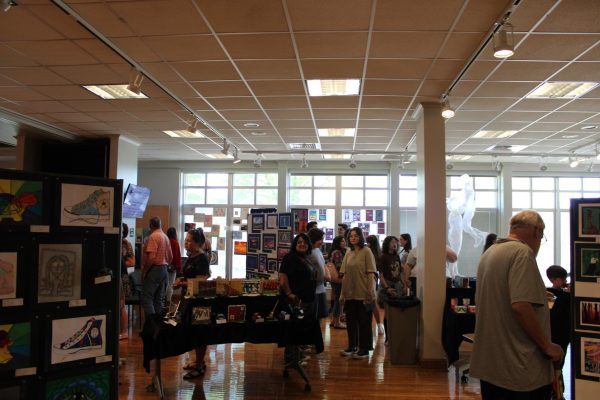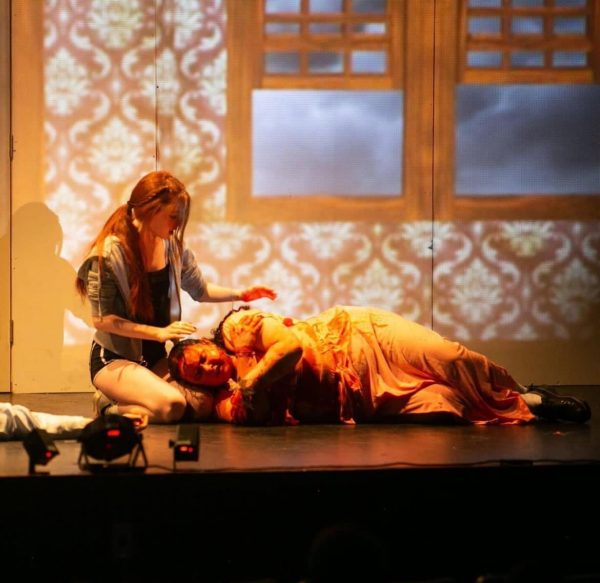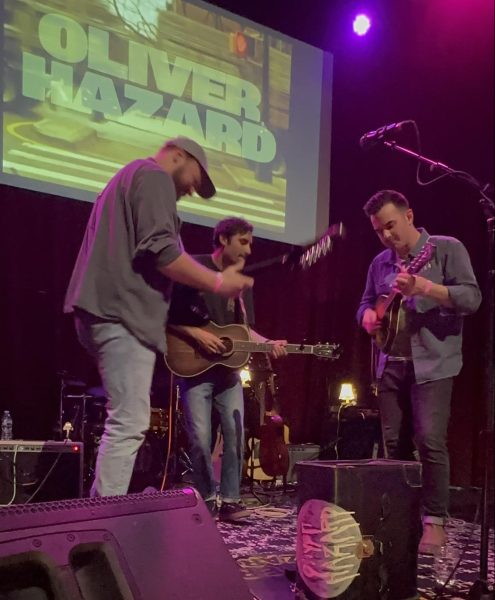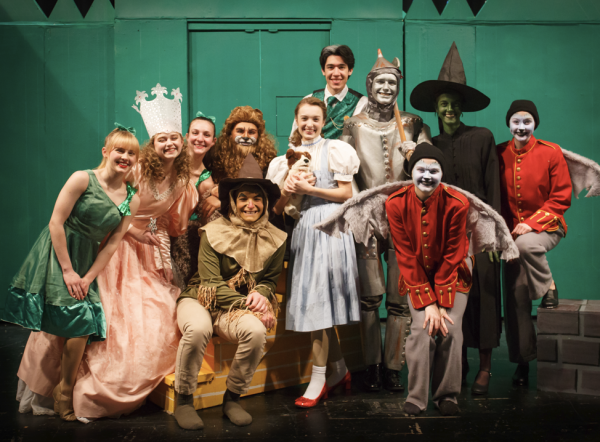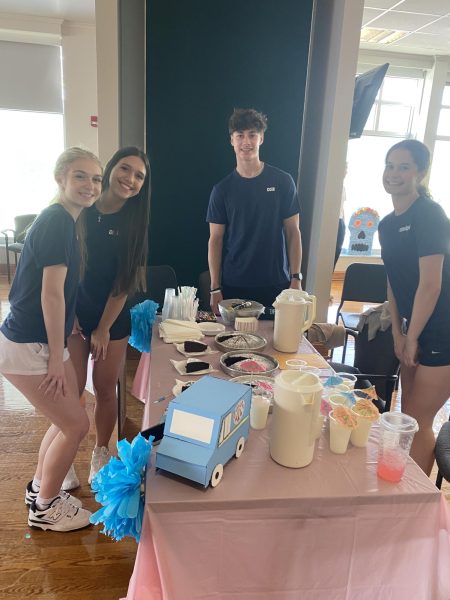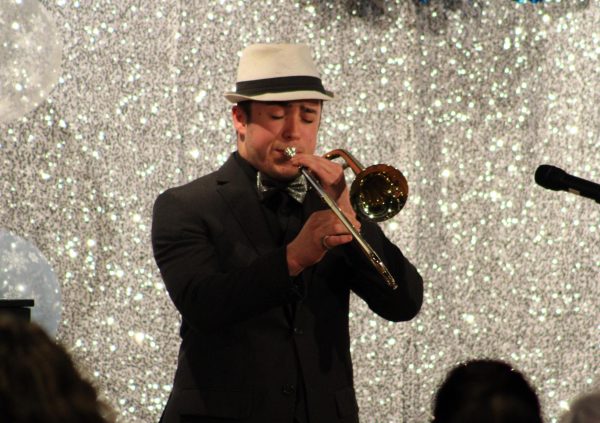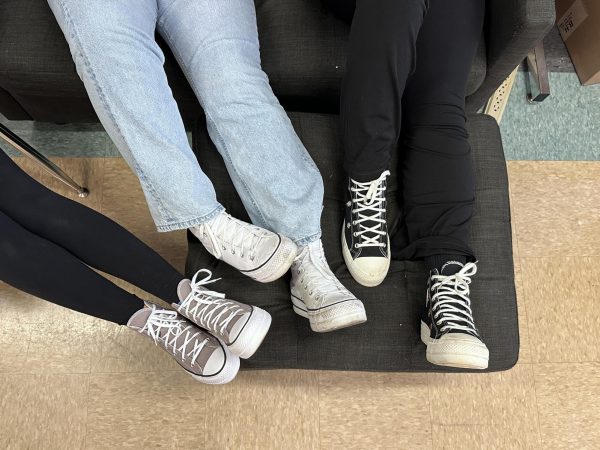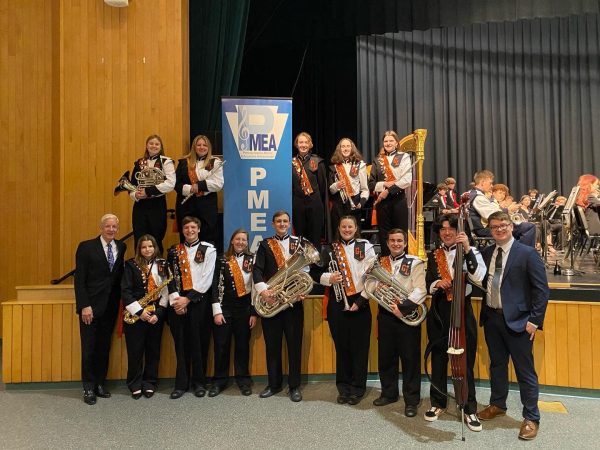Tuning into the Power of Music
In between classes, students stroll through the hallways disconnected from society as their favorite song is blaring through their AirPods. During lunch, I walk past cliques blasting their favorite genre through a bluetooth speaker. Driving down the road I hear a booming stereo system next to me; a car full of teens letting loose to a recently released album from their favorite artist. Wherever teenagers go, music follows.
Music has always been a prominent element of the teenage lifestyle, as teenagers are often times associated with it. The popularity of music among youth remains sky-high, yet the influence of it is rarely questioned.
As a universal art form, music influences listeners’ emotions, perception of the world, themselves, and those around them. Many teenagers are subconsciously drawn to the everlasting benefits that music induces.
Singer Mikee Kershaw says, “Music has honestly helped me through so much. I feel like more often than not it’s difficult for me to think without feeling overwhelmed. When I hear a song with lyrics of what I want to say, but can’t collect my thoughts, it brings my own ideas out in a more linear way than I would be able to.”
Similarly, Ethan Kammerer explains, “Especially around 2017, when I felt most alone and isolated, certain artists’ music would give me hope and give me the strive I need to move on.” He says, “Music for me is a sort of coping mechanism and it helps me get through some really dark and bad times in my life, so it helps me feel like I’m not alone in my struggles.” Kammerer’s fascination has inspired him to begin making music of his own. “Ever since elementary school, I have had the drive to one day produce my own music so that I can at least touch one person’s heart and make them feel less alone, or give them memories that I always cherished with the music I grew up on.”
Sometimes a song will put words to our emotions when we don’t know how. Other times, a song will vividly describe a situation similar to one we are experiencing, making us feel less lonely or outcasted. Even further, one song will flood our brains with a memory or person in which we connect the song to, forcing us to reminisce on happy times.
Perhaps the most magical characteristic of music lies within its ability to bring people together regardless of their differences. Similarly, one song can spark up a conversation with a stranger enduring a similar taste in music, bringing people together.
The benefits of music are endless.
While music can guide and help people, it does have its flaws. Certain genres portray explicit content. The rap industry, in particular, pumps damaging ideologies into the developing brains of teens. Artists in this genre boast about sex, money, and drugs, posing the idea that these elements define a person. People begin to feel as if life is a competition with materialistic things being the winning prize. Even further, music videos present similar concepts through graphic, uncensored visuals. A prominent and praised scene is the degradation of women, exposing youth to sexist perspectives.
Despite these offensive and vulgar messages, teens are drawn to these controversial topics. Lyrics deliver a sense of empowerment to listeners and offer insight into social issues including gun violence, racism, and socioeconomic issues. Rap enthusiast, Clayton Sakalousky, explains, “it speaks about the struggles of groups that I’m not a part of. So, it helps me to understand and empathize with people that I could never understand the motivations of otherwise.”
However, some teens care less about the lyrics and simply crave a catchy instrumental, or beat. Choir member, Keeley Thomas says, “I feel that songs with meaningful lyrics allow for interpretation, but the beat of the song is universal. Even people who don’t speak the song’s language can enjoy it.”
Interestingly, the musical desires of teens shift depending on the people around them. Sakalousky says, “When I’m with friends, I listen to more mainstream songs with catchy lyrics and beats, but when I’m alone, I prefer songs with deeper more meaningful lyrics that usually tell a better story.”
With music being so impactful, Thomas believes that music should be implemented into a greater variety of courses at Greater Latrobe. “Although I think classes like choir and band are great for learning the basics of music in terms of the technical side, I’d love to see courses on how music impacts society, modern music, etc. I think the impact on students would be tremendous because music speaks to all people, regardless of how different they are. The skills students can learn from taking music classes, such as understanding other cultures, problem solving, teamwork, etc., are skills that translate to things they will be using in the workforce and in life in general.”
Thomas’s comment poses an interesting concept. Even though the majority of teenagers enjoy listening to music, educational courses could open doors to a deeper understanding of what they’re listening to.
As we plug in and tune out of reality, we underestimate the power music holds. Acting as sunshine after a thunderstorm, a bridge between opposing viewpoints, insight into controversial topics, and a universal hobby, music will continue to be a common interest among teenagers during a time of transformation.

My name is Abby Shaffer. I’m often found sparking up conversations that usually don’t come up at the dinner table. My mind is filled with curiosity...


